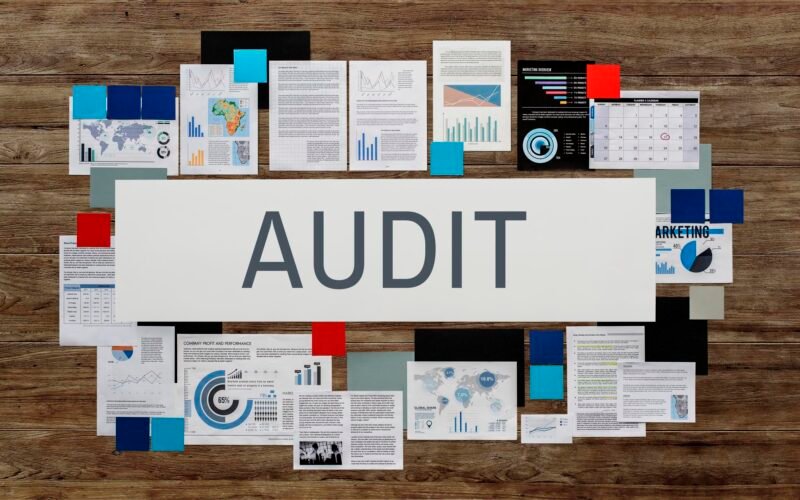For years, Maltese business owners have complained that even the smallest firms were forced into annual audits, often at disproportionate cost. Forcing every business to undergo annual audits – no matter if Nestlé-sized or your local bakery – was highly unusual for a European country, and something the EU has been actively pushing against for years.
Now, with the Audit Exemption Rules 2025, that burden has finally been lifted. The reform ends a contradiction that lasted almost two decades and puts Malta on the same footing as the rest of Europe. For thousands of small companies, it means genuine savings in both time and money and no doubt has caused a few auditors to nervously adjust their collars.
Why Was Every Maltese Business Forced to Be Audited
The irony is that Malta’s Companies Act has actually contained audit exemptions on paper since 2006, when the EU Accounting Directive was first transposed. Micro and small companies were theoretically entitled to lighter rules, below €93k turnover, €46.6k in assets, and 2 employees, no audit should have been required.
But there was a catch. The Income Tax Management Act (ITMA), Article 19(4)(a), still required every company to file audited accounts with its tax return, regardless of size or activity. That blanket obligation trumped the Companies Act. The result was that for almost two decades, the exemptions existed only in theory. In practice, even dormant companies or start-ups with zero turnover faced the same audit requirements as much larger firms.
This longstanding contradiction is what the Audit Exemption Rules 2025 (Legal Notice 139 of 2025) have finally fixed. By aligning tax law with company law, Malta has made those exemptions real for the first time. What had been a “phantom exemption” since 2006 has now become a tangible relief, marking the end of an era in which Maltese business owners paid for audits they should never have needed.
New Audit Thresholds: From Micro to Small (and Beyond)
The Maltese government introduced the Audit Exemption Rules, 2025 (Legal Notice 139 of 2025) to overhaul audit obligations for small enterprises. These rules apply to financial periods starting on or after 1 January 2024 (with some parts effective 2025), and they create two main avenues for companies to be audit-free:
- 1. Micro-Entity Exemption: If your private limited company qualifies as a “micro” entity, it can be fully exempt from statutory audit. The new criteria define micro entities as those that do not exceed two of the following three thresholds: turnover €93,000, total assets €46,600, and an average of 2 employees. If your company stays within all three of these limits, you no longer need to present an auditor’s report with your financial statements– hallelujah! This is a full exemption. If you meet two out of three, you get a partial break: no statutory audit needed, but you must obtain a review engagement report (a lighter-touch assurance report) In practice, this means the tiniest businesses can avoid the whole audit circus entirely, and even slightly larger “micro” firms only need a simplified review but more on this and some case studies later.
- 2. Startups & New Small Companies Waiver: The new rules also throw a bone to freshly minted startups. Newly formed companies can get an audit waiver for their first two accounting periods if they meet a few criteria: all shareholders must be individuals (no corporate shareholders) who recently finished a qualifying education (i.e. MQF Level 3 or higher, within the last 3 years), and the company’s annual turnover stays under €80,000 in those years. In other words, if you and a couple of college buddies launch a small venture soon after graduating, you won’t need an audit for the first two years as long as revenues are modest. Even better, if you do decide to voluntarily audit those first years (maybe to impress a bank or investor), you get a tax deduction of 120% of the audit fee (capped at €700 which, frankly, is less than the average audit cost). Note that this startup exemption is sensitive to ownership changes: if your shareholder makeup changes and no longer fits the criteria (e.g. you bring on an investor who is a company), the exemption and tax deduction vanish.
- 3. Extended Relief for “Small” Companies (2025 Onward): From accounting periods beginning on or after 1 January 2025, the audit exemption is extended to companies meeting Malta’s updated “small company” criteria, in line with EU recommendations. A small company is one that stays below two of the following three limits: a balance sheet total of €7.5 million, turnover of €15 million, and 50 employees. To qualify, these limits must be respected for two consecutive accounting periods. Meeting two out of three thresholds means a review report, ISRE 2400 standard, is enough. Meeting all three means no audit or review is required for tax purposes. This is a major leap the bar has been raised from the microscopic €93k turnover level to €15m. In effect, Malta is saying: if you are “small” by EU standards, you won’t be forced into an audit purely for the tax return. The rule also applies to companies in small consolidated groups, and shipping companies have their own special limits (€12m turnover, €6m in assets, and up to 50 employees).
Put simply, Malta has flipped from a regime where everyone had to be audited, no matter how small, to one where most small companies can finally skip it. As one weary accountant joked, “Malta has at last joined the 21st century of SME friendliness.”
That doesn’t mean a free-for-all. You’ll still need to keep proper books, prepare accounts under GAPSME or IFRS, file them with the authorities, and send in your annual tax return. In other words: you can’t throw your ledgers on the bonfire and tell the taxman, “I’m small, so no paperwork.” Compliance hasn’t vanished. And there are limits: public companies, banks and insurers remain firmly outside the exemption. But for the thousands of private businesses that make up Malta’s backbone, this change is a genuine bonfire of red tape.
Thousands of Companies Affected – and Millions in Saving
Just how big a deal is this for Malta’s business community? In a word: huge. Malta is a country of primarily small and micro enterprises. According to official statistics, there were about 56,000 active enterprises in Malta in 2023 and over 97% of these are micro or small by size (most have under 10 employees). In the past, virtually all incorporated businesses among them had to pay for an annual audit. To illustrate, a 2017 report noted Malta had about 85,673 micro-enterprises, of which 45,708 were legally required to undergo an audit (yes, tens of thousands of tiny firms). According to the Times of Malta the basic cost of an audit for a standard micro company is around €1,000 often a lot more if your accounts are complex. Do the math and you see an enormous aggregate cost:
With the new threshold changes, the majority of those 45k+ companies can wave goodbye to the mandatory audit. Even if not all eligible firms opt out (some might still choose voluntary audits for their own reasons), the impact is significant. The Malta Chamber of SMEs (GRTU) had long advocated for voluntary audits for micros, estimating that if 40% of micro companies took up an exemption, they’d save around €18 million in fees annually. Now that the exemption is reality the potential savings could be even higher over time. That’s money that can be re-invested in the business hiring staff, upgrading equipment, launching marketing campaigns or simply not spent, improving the bottom line. As one Minister put it, by freeing small businesses from needless audits, companies can “reinvest in their businesses, increase cash flow, and repay debts” with the money saved.
In the UK, which has had similar exemptions for years, small firms saved on average £4,500 each per year. And beyond the direct costs, think of the time and hassle saved: 83% of UK businesses in surveyed said audit exemptions saved them precious time that would’ve been spent dealing with auditors and paperwork.

Malta vs. the World: Finally Catching Up
The European Union has for a long time encouraged lighter regimes for small businesses. The EU’s Accounting Directive 2013/34/EU explicitly stated that small undertakings’ financial statements need not be audited because “an audit can be a significant administrative burden” for that category. Most EU member states took that to heart and implemented generous audit exemption thresholds. For example, the UK has exempted small companies from audit since 1993 and has periodically raised the bar to include more companies. This led to more than a million UK businesses being audit-exempt, collectively saving £4.6 billion in 2015 alone . Yes, that’s billions with a b!”
Malta until now was an outlier on the other extreme. Those tiny thresholds of €46k balance sheet and €93k turnover were literal pocket change compared to the EU maximum for small companies. A commentator illustrated it well: a Maltese cooperative with just €50K revenue had to pay for an audit due to income tax requirements, whereas in Germany a company of that size would be completely exempt (Germany uses the upper end of EU thresholds, in the millions) highlighting how this was hurting Malta’s competitiveness.
A New Perk of Doing Business in Malta
Malta has long marketed itself as a business-friendly jurisdiction, low effective taxes, a skilled English-speaking workforce, EU-single-market access, and sunshine to boot. Now we can add “lower compliance costs for SMEs” to that list of perks.
It’s worth noting the government isn’t abandoning financial oversight entirely. Regulatory authorities like the Malta Business Registry (MBR) will still receive your financial statements and can review them. The Commissioner for Revenue will still expect accurate tax returns. So integrity of financial reporting is meant to be maintained The authorities have promised that removing the audit requirement will be done “whilst ensuring that the integrity of financial statements is not compromised”. This could mean more spot-checks or other compliance measures for small companies down the line, but those are likely to be far less burdensome than a full audit for everyone.
Case Studies: How the Audit Exemption Works in Practice
These case studies are adapted from MTCA, Guidelines in relation to the Audit Exemption Rules (Legal Notice 139 of 2025). (Year N = relevant accounting period; Year N-1 = the year before; Year N-2 = two years before.) All cases assume the company is registered in Malta.
Case Study 1: Review Instead of Audit
Company A: Meets 2 of 3 small-company criteria (balance sheet + turnover) for Year N-1 and Year N; employees exceeded the limit. Legal hook: Rule 6(1)(a) (Audit Exemption Rules 2025); Article 185(2) Companies Act; fulfils Article 19(4)(a) ITMA via review report.
Outcome: A review engagement (ISRE 2400) suffices; no full statutory audit required.
| Year N-1 | Year N |
|---|
| Balance sheet total | €35,000 | €40,000 |
| Turnover | €76,000 | €90,000 |
| Average employees | 9 | 10 |
Case Study 2: Full Exemption (No Audit, No Review)
Company B stayed below the thresholds for all three criteria (balance sheet, turnover, and employees) for two consecutive years. Legal hook: Rule 6(1)(b); Article 185(2) Companies Act.
Outcome: Fully exempt from statutory audit and review.
| Year N-1 | Year N | |
|---|---|---|
| Balance sheet total | €38,000 | €40,000 |
| Turnover | €75,000 | €80,000 |
| Average employees | 2 | 2 |
Case Study 3: Small Group → Parent can Claim Relief
Company C is a parent with two subsidiaries. The group’s consolidated figures remain under the thresholds for two years. Legal hook: Rule 6(1)(a)/(b); Article 185(5) Companies Act (group must qualify as “small”).
| Year N-1 | Year N | |
|---|---|---|
| Balance sheet total | €2.8 million net | €3 million net |
| Turnover | €4.5 million net | €5 million net |
| Average employees | 35 | 35 |
Outcome: If Company C, at an individual level:
Meets all 3: it enjoys a full exemption, in line with article 185(2) to the Companies Act at an individual level for two consecutive years, (Rule 6(1)(b) of the Rules).
Meets 2 of 3 criteria: a review report is enough., it may submit a review report instead of a statutory audit report according to (Rule 6(1)(a) of the Rules).
Case Study 4: Group too Large → No Relief
Company D, Company D is a company registered in Malta and has two wholly owned subsidiaries. The consolidated group figures (i.e. the figures of the parent and its subsidiaries combined)
Although small on its own, forms part of a group that breached the thresholds across three years. Legal hook: Rule 6; Article 185(5) Companies Act (must qualify for two consecutive years).
| Year N-2 | Year N-1 | Year N | |
|---|---|---|---|
| Balance sheet total | €4.2 million net | €4.1 million net | €5 million net |
| Turnover | €8.1 million net | €7.9 million net | €8.5 million net |
| Average employees | 30 | 30 | 35 |
Outcome: Although D looked “small” in Year N-1, No exemption applies because the group failed to qualify as small in Year N-2 (and again in Year N). Group status overrides the parent’s solo position.
Practical FAQ: Switching to the New Audit Exemptions
Do I need to apply for audit exemption?
No. There’s no separate form to fill in. If your company qualifies under the thresholds, you simply prepare your annual accounts without a full audit.
What if I need a review engagement instead of an audit?
In that case, you engage an accountant to perform a review engagement (done under ISRE 2400 standards). The accountant issues a review report, which is attached to your financial statements. This replaces the traditional auditor’s report.
How do I show the company has switched?
When approving the accounts, the directors should minute that the company meets the exemption criteria and is filing with a review report (or no report, if fully exempt). The financial statements and the attached review report themselves serve as evidence.
Do I still file accounts with the MBR and a tax return with the Commissioner for Revenue?
Yes. Exemption only removes the statutory audit requirement. You must still prepare and file accounts with the MBR, and submit the tax return and computations to the tax authority.
What if a bank or investor insists on an audit?
You may still voluntarily engage an auditor if needed.
Need Advice?
If you’d like tailored advice, Expatax can put you in touch with trusted professionals in Malta who can guide you through the new audit exemption rules and assist with your company’s compliance needs.







